Environmental Justice Series
Everyone deserves a healthy environment in which to live, learn and work, but for millions of individuals this is out of reach. The growing field of environmental justice aims to provide fair treatment and meaningful involvement of all individuals on the development and implementation of policies and laws that may affect their health. But how do we as social workers fit into this complex puzzle? Every day we see the impact of extreme weather, urbanization, food insecurity, and more on individuals, families and communities.
This academic year we are proud to host an open, honest and powerful three-part series focused on environmental justice. The series will allow us to take an in-depth look at environmental justice on a national and local Detroit scale. We hope participants leave the series with tangible ways in which they can advocate for a just society and empower social change in their communities.
Series details:
- Event #1: Addressing food justice and environmental justice through culturally grounded and land-based interventions on Thursday, November 17, 2022 from 3 - 5 pm on Zoom
- Event #2: 2022 Social Entrepreneurship Conference; Social Entrepreneurship in Action: Advancing Food and Environmental Justice through Social Innovation and Enterprise on Friday, December 2, 2022 from 9 am - 4 pm in the WSU Mike Ilitch School of Business
- Event #3: A Call to Action: The Fight for Environmental Justice in Detroit on Thursday, March 23, 2023 from 3 - 5 pm EST on Wayne State's campus
This series will explore. It will provide students, social workers, and community members with tangible ways they can advance environmental justice in their communities.
Environmental Justice Series Flyer
Event #1: Addressing food justice and environmental justice through culturally grounded and land-based interventions
Thursday, November 17, 2022
3 - 5 pm EST
Zoom
Cost to Attend: Free
Continuing Education: 2 Social Work CECH's are available for a cost of $10
Keynote PowerPoint by Michael Spencer
The Wayne State University School of Social Work will kick-off our Environmental Justice three-part series with an interactive session discussing the connections between food justice and environmental justice led by kenote speaker Michael Spencer, PhD, University of Washington Presidential Term Professor in Social Work, Associate Dean for Academic Affairs, and the Director of Native Hawaiian, Pacific Islander, and Oceanic Affairs at the UW Indigenous Wellness Research Institute (IWRI). Spencer will share research projects working with Native Hawaiian communities to address historical and structural injustices that have led to concentrated poverty, food insecurity, and disconnection from land. Through culturally grounded and land-based interventions, Native Hawaiians are empowered to reconnect with their culture, their community, and their environment.
The event with also feature breakout groups by local Detroiters discussing the roles that social workers could serve in local environmental justice and food justice spaces.
We request that attendees submit questions for the Q&A portion of the event via the RSVP form.
Keynote and breakout room facilitators:
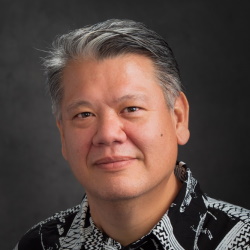
Michael Spencer, PhD (KÄnaka Maoli) is the Associate Dean for Academic Affairs, UW Presidential Term Professor in Social Work, and the director of Native Hawaiian, Pacific Islander, and Oceania Affairs at the University of Washington Indigenous Wellness Research Institute. He also holds adjunct appointments in the School of Public Health in the departments of Global Health and Health Systems and Population Health and as a Faculty Research Affiliate with the Center for Studies in Demography & Ecology (CSDE). His research examines health equity and wellness for populations of color, and more specifically Native Hawaiian and Pacific Islanders (NHPI) in recent years. He is focused on interventions that promote health among NHPI through Indigenous practices and values. He accomplishes this through community-based, participatory research (CBPR) methods. While conducting CBPR in Detroit, Spencer served as PI of the REACH Detroit Family Intervention, a project which aimed to promote healthy lifestyles among patients with type 2 diabetes using community health workers. Culturally tailored interventions were designed for African American and Latinx residents in two Detroit communities.
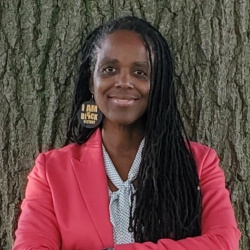
Anjanette Davenport Hatter is an innovative founder and CEO at Harambee Care, an equity based social work enterprise focused on professional and emotional wellness and Your goodVillage Collective, a nonprofit organization that aims to improve health outcomes. As Hatter has served as a clinical social worker, and a social justice and health equity leader. Through her advocacy efforts, Hatter provides opportunities for community members to become educated about family safety and first food initiatives. She serves as a Commissioner with her community's Commission on Diversity and Inclusion. Hatter earned professional certificates from Harvard and the University of South Florida in Strengthening Community Health Workers and Diversity Equity and Inclusion in the Workplace, respectively. She holds a bachelor's degree from Michigan State University in Family and Child Ecology and a master's degree in Social Work from Wayne State University.
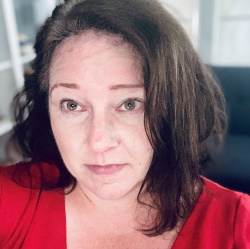
Amy Kuras is the Research and Policy Program Manager for the Detroit Food Policy Council. The Detroit Food Policy Council aims to influence policy which ensures the development and maintenance of a sustainable and equitable food system, resulting in a food-secure City of Detroit in which all of its residents are hunger-free, healthy, and benefiting from a robust food system. Kuras holds a masters of social work and a bachelor's in journalism from Wayne State.
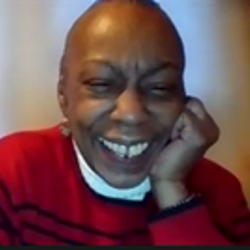
Julie Rice is the Hope Village Revitalization's Assistant Director and Market Manager. HOPE Village Revitalization is a community-led, community driven organization whose mission is to move the HOPE Village neighborhood forward in a way that mitigates disparities in wealth, privilege and educational resources. A long time Hope Village resident, she has made a significant contribution to the Hope Village neighborhood and the Hope Village Farmers Market over the past years.
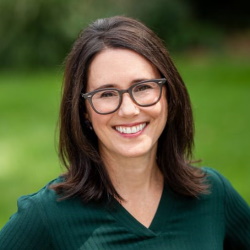
Danielle Todd is the Executive Director of Make Food Not Waste. Make Food Not Waste is a Michigan based organization whose mission is to keep food out of landfills and slow climate change by creating lasting solutions to food waste through education, food upcycling and advocacy. Todd is a an alum of Wayne State having earned a degree from the Mike Ilitch School of Business.
Event #2: 2022 Social Entrepreneurship Conference; Social Entrepreneurship in Action: Advancing Food and Environmental Justice through Social Innovation and Enterprise
Friday, December 2, 2022
9 am - 4 pm EST
Mike Ilitch School of Business
2771 Woodward Avenue Detroit, MI 48201
Cost to Attend: FREE for students; $45 for non-students; Costs include continental breakfast and a special catered "shoebox" lunch from the proprietors of the "Taste of the Diaspora - Detroit"
Continuing Education: 4.5 Social Work CECH's are available for a cost of $75 (includes attendance fee).
Registration Deadline: November 27, 2022
Learn more at the Conference webpage
For the second event in our Environmental Justice series we are excited to bring back our in-person 4th Annual Social Entrepreneurship Conference! Given rising food insecurity and the inequities in the food space that the COVID crisis has highlighted, this year's conference will center on the intersection of food production, distribution, and retail operations and social innovation and enterprise. Participants will hear from social entrepreneurs, community-based food producers, program developers, and thought-leaders who are addressing food and environmental challenges through social innovation and enterprise. The keynote lecture "Building Food Sovereignty Through Cultural Collectivity and Community Ownership" will be led by Shakara Tyler, PhD, a returning-generation farmer, educator and organizer. Breakout sessions include general business development topics with industry professionals who are knowledgeable about how to start, grow, and scale social ventures.
Whether you are thinking about starting a business or venture with a social impact (e.g. social enterprise, private practice, evaluation/consulting agency, or nonprofit), a social justice advocate, or just curious and want to learn more about social innovation in the community, make plans to join us for a day full of inspiring presentations and networking opportunities.
Keynote speaker:
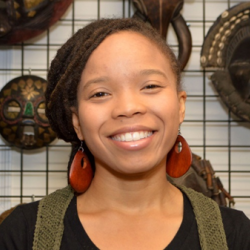
Shakara Tyler, PhD is a returning-generation farmer, educator and organizer who engages in Black agrarianism, agroecology, food sovereignty and environmental justice as commitments of abolition and decolonization. She obtained her PhD at Michigan State University in Community Sustainability (CSUS) and works with Black farming communities in Michigan and the Mid-Atlantic. She has worked with the MSU Center for Regional Food Systems as the Underserved Farmer Development Specialist where she provided technical assistance to underserved farming groups such as BIPOC farmers, women farmers and beginning farmers. She explores participatory and decolonial research methodologies and community-centered pedagogies in the food justice, food sovereignty and environmental justice movements. She also serves as Board President at the Detroit Black Community Food Security Network (DBCFSN), board member of the Detroit People's Food Co-op (DPFC) and co-founder of the Detroit Black Farmer Land Fund (DBFLF) and a member of the Black Dirt Farm Collective (BDFC).
Event #3: A Call to Action: The Fight for Environmental Justice in Detroit
Thursday, March 23, 2022
3 - 5 pm EST
WSU campus
Cost to Attend: Free
Continuing Education: 2 Social Work CECH's are available for a cost of $10
The third portion of our Environmental Justice Series will introduce attendees to the advocacy efforts of local Wayne State Social Work students, alums, and community leaders in the fight for environmental justice in and around our home of Detroit.
We request that attendees submit questions for the Q&A portion of the event via the RSVP form.
Panelists:
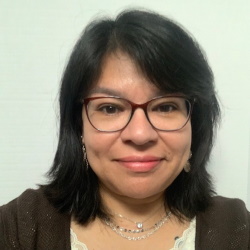
Doris DeMarco is a current WSU School of Social Work Master of Social Work student. DeMarco is a member of the Social Work Student Alliance (SWSA) and answered a call to action to assist those impacted by the June 2021 storms. The SWSA partnered with the Department of Homeland Security/Federal Emergency Management Agency (FEMA) to provide short-term assistance to Metro Detroit residents impacted by the storms, flooding and tornadoes.
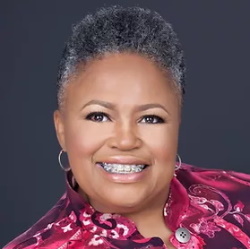
Monica Lewis-Patrick, MALS (aka The Water Warrior) is an educator, entrepreneur, and human rights activist/advocate. She currently serves as the President, CEO, and Director of Community Outreach and Engagement of We the People of Detroit (WPD). As a community-based grassroots organization, WPD aims to inform, educate, and empower Detroit residents on imperative issues surrounding civil rights, land, water, education, and the democratic process. Lewis-Patrick is actively engaged in the struggle for access to safe, affordable water for all under-resourced communities. As a former Lead Legislative Policy Analyst for Detroit City Council, Lewis-Patrick has authored legislation, conducted research, and delivered constituency services to thousands of city residents.
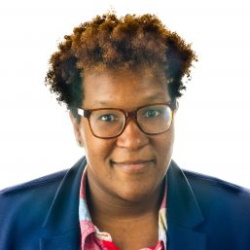
Briana Parker, Esq. is the Associate Director of Policy, Diversity and Inclusion at Elevate, a nonprofit organization designing and implementing programs that reduce costs, protect the environment, and ensure the benefits of clean energy and water reach those who need them most. Before joining Elevate, Parker studied law and worked as a social worker. Parker has been an organizer and member of Michigan Welfare Rights Organization for over a decade, an all-volunteer anti-poverty organization that represents low-income workers in the state. Parker is a WSU alum having earned a masters in community social work.
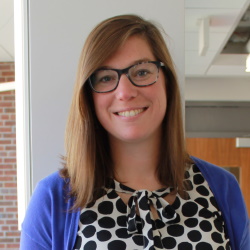
Erin Stanley is the Director of Climate Equity at the Eastside Community Network. For over 36 years the Eastside Community Network (formerly Warren Conner Development Coalition) has worked tirelessly to develop programs and resources that center the needs of east side residents and amplify their voices with respect to the development of their communities. The Eastside Community Network has built a reputation as a leader in the urban climate resilience space focusing our efforts on policy advocacy, infrastructure development, and community education that promotes climate resiliency and equitable climate change strategies in Detroit. Stanely is a current WSU PhD candidate in the School of Social Work.